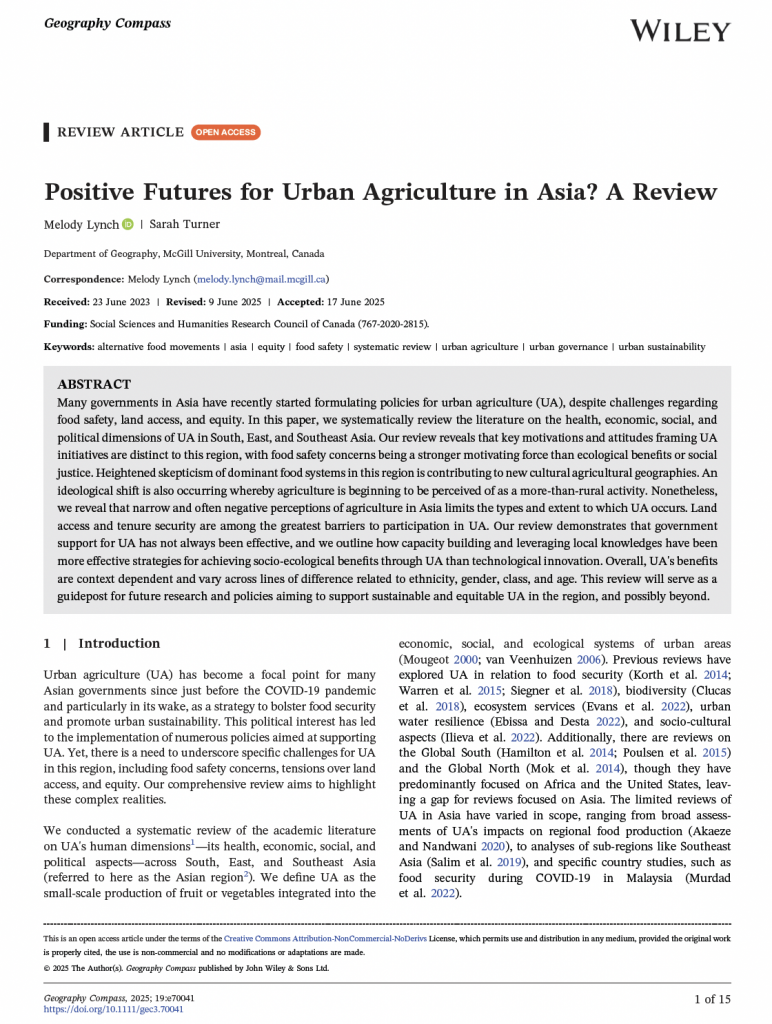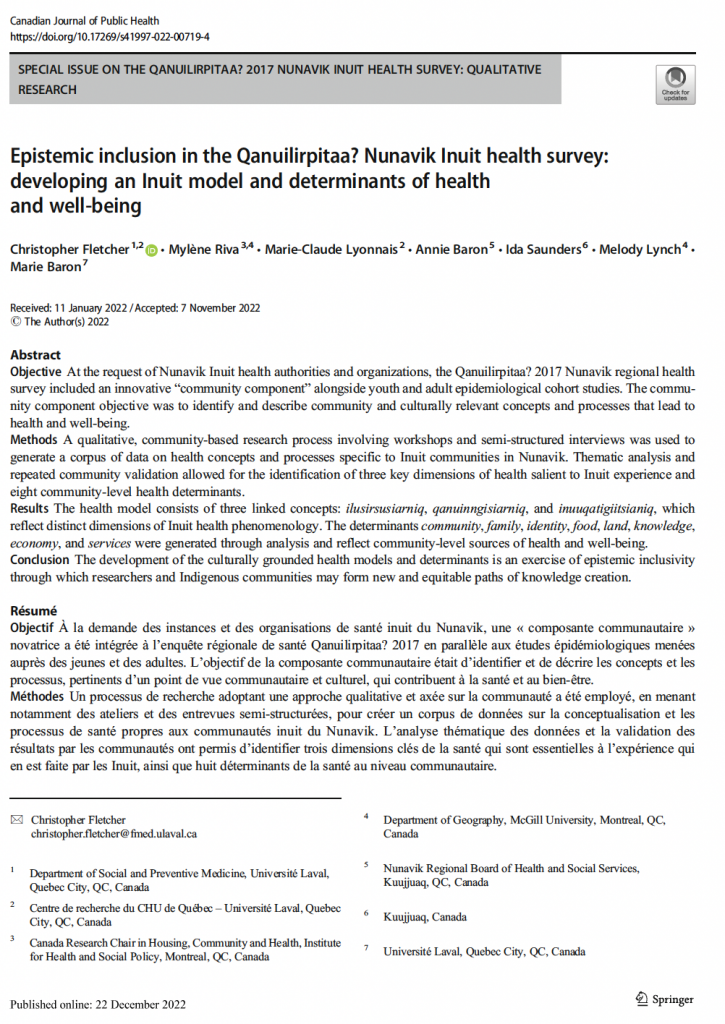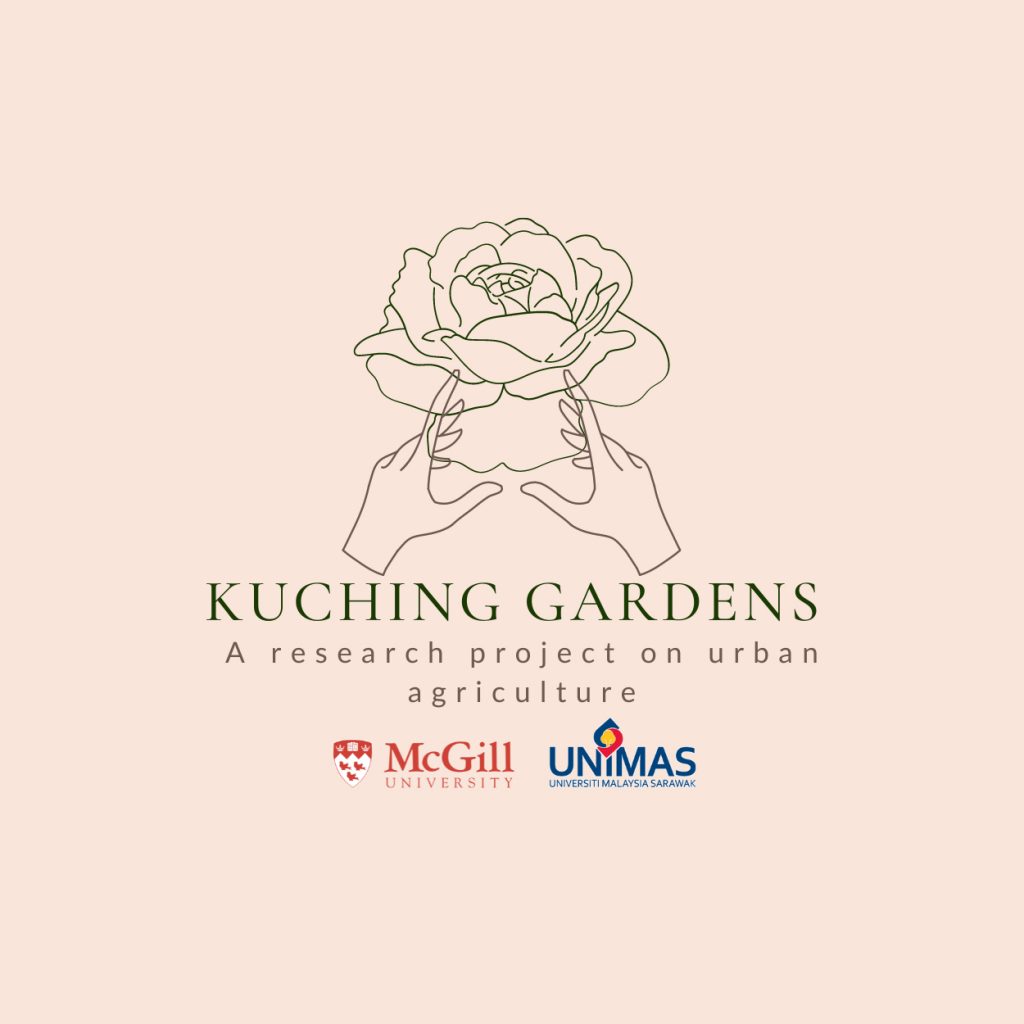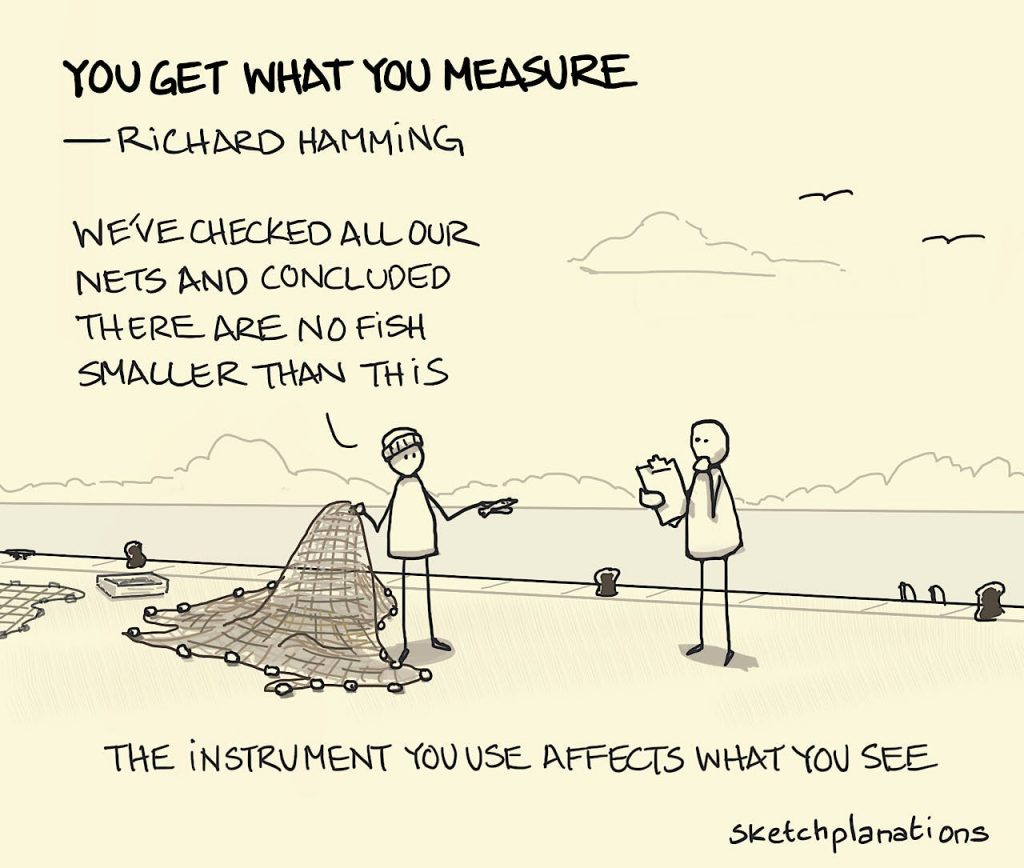Abstract: Many governments in Asia have recently started formulating policies for urban agriculture (UA), despite challenges regardingfood safety, land access, and equity. In this paper, we systematically review the literature on the health, economic, social, andpolitical dimensions of UA in South, East, and Southeast Asia. Our review reveals that key motivations and attitudes framing UAinitiatives are distinct to this region, with food safety concerns being a stronger motivating force than ecological benefits or socialjustice. Heightened skepticism of dominant food systems in this region is contributing to new cultural agricultural geographies. Anideological shift is also occurring whereby agriculture is beginning to be perceived of as a more‐than‐rural activity. Nonetheless,we reveal that narrow and often negative perceptions of agriculture in Asia limits the types and extent to which UA occurs. Landaccess and tenure security are among the greatest barriers to participation in UA. Our review demonstrates that governmentsupport for UA has not always been effective, and we outline how capacity building and leveraging local knowledges have beenmore effective strategies for achieving socio‐ecological benefits through UA than technological innovation. Overall, UA’s benefitsare context dependent and vary across lines of difference related to ethnicity, gender, class, and age. This review will serve as aguidepost for future research and policies aiming to support sustainable and equitable UA in the region, and possibly beyond.
Keywords: alternative food movements | asia | equity | food safety | systematic review | urban agriculture | urban governance | urban sustainability
Read the full article, here.










